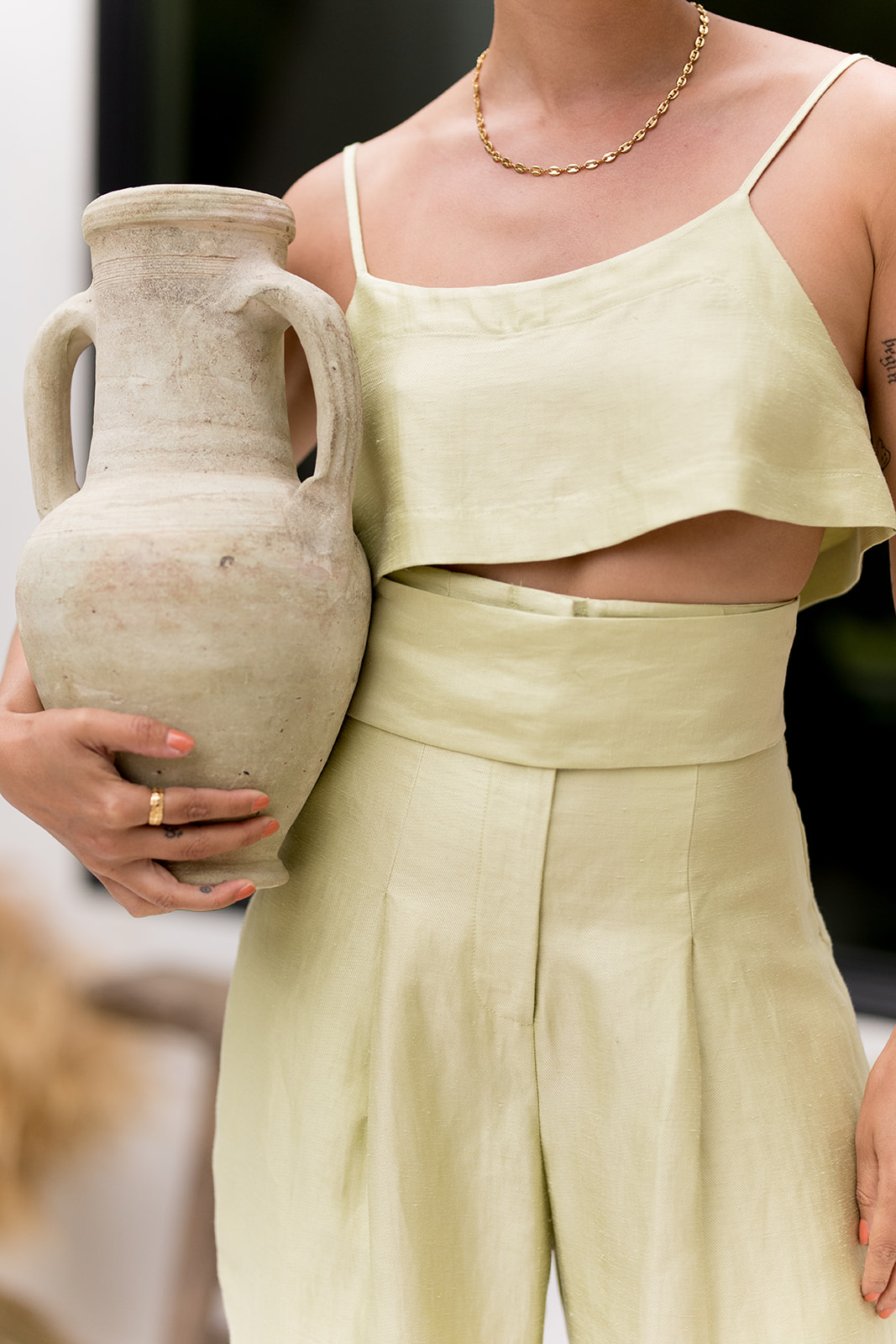I moved through the world trying not to make a fuss. Between my Midwest upbringing, my Nordic ancestry, and a tumultuous childhood, I learned early on that there were few things in life more valued than being low-maintenance.
“I learned early on that there were few things in life more valued than being low-maintenance.”
I’d grown up hearing the men praise the easy-going women in their lives and observed humble folk speak disparagingly about those who were “uppity.” I listened to women judge other women for their choices, everything from their hair, their shopping, and their mothering. I’d absorbed society’s messaging that encouraged women to be everything and need nothing. Low-maintenance women were the cool girls, the good, selfless mothers, the well-behaved daughters. I wanted nothing more than to be loved, so I tried not to bother anyone with all of my inconvenient big feelings.
I learned to manage my emotions by writing them on paper instead of voicing them to those around me. Instead of letting parents at sleepovers know about my food or pet sensitivities, I learned to wash my hands repeatedly and apply my medication when my hands would flare. I learned to be a good student, not get into trouble, and use my manners. I learned to apologize, people-please, and be grateful above all else.
“I learned to apologize, people-please, and be grateful above all else.”
But in my second year of undergrad, I knew something had to give. I’d spent the last few years doing church ministry, and while it had been fulfilling, I’d overextended myself. In high school, I’d learned to overschedule as a way to cope with my ever-increasing anxiety. Now I was 20 years old, clinically anxious, and already aware that this pace was not sustainable. I’d just transferred to a new university and, with this fresh start, I made a commitment to myself that I would not add anything extra to my plate. I began seeing the on-campus counselor, dedicated myself to my coursework, and learned for the first time what it meant to have boundaries that allowed me space to heal.
“I was 20 years old, clinically anxious, and already aware that this pace was not sustainable.”
During this time, I paid attention to the things that felt grounding. I’d wake before dawn (yes, even in college), and pour myself out onto the page. I’d stay in my pajamas on Saturdays and never once feared I was missing out on whatever was happening out in the world. I lived with my girlfriends, and we’d stay up into the night, laughing, crying, and I learned I was worth listening to. College was my safe little cocoon after two decades of self-denial and uncertainty.
After school, I moved to California, found a therapist there, and delved deeper into healing my childhood wounds. Like many of us, I’d grown up too fast. I was diagnosed with severe generalized anxiety, complex PTSD, and depression, and started taking an SSRI. After my adjustment period, I could not believe I hadn’t chosen to use this tool to aid in regulating my nervous system sooner. Taking anxiety medication had quite literally changed my life by slowing the noise and helping me get regulated in order to be capable of feeling my long-suppressed feelings.
“Taking anxiety medication had quite literally changed my life.”
As I took steps toward caring for myself in this way, my needs began to overwhelm me. Being a highly sensitive, high-need person felt antithetical to the low-brow, Midwest-born-and-bred stock I was surrounded by. Taking anxiety medication felt like the opposite of pulling myself up by my bootstraps, and asking for help felt self-indulgent.
I waited for my needs to decrease as I continued to address them. I thought the more I cared for myself, the fewer needs I would have, but the opposite turned out to be true. The more I began to tend to every part of me, the more needs revealed themselves, as if they felt safe to emerge, knowing they would no longer be shoved away.
“The more I began to tend to every part of me, the more needs revealed themselves, as if they felt safe to emerge.”
The truth was that I had a lot of needs. I was easily overstimulated both in my body and my mind. I’d limped along trying to manage my autoimmune condition, and my symptoms were getting worse. After two difficult pregnancies and births, I was undernourished, exhausted, and needed physical therapy. Now that I’d created a safe home with my own family, I had a whole luggage rack of trauma to unpack, and two small children to care for in the meantime.
To need is to be vulnerable, and I was so tired of feeling vulnerable. But like every other living, breathing thing, I have needs and I always will. I don’t look at the birds and despise them for needing clean air, and I’ve never looked at a withering tree and imagined it was her fault. Just as each and every variety of flower needs particular amounts of rain and sunshine and shade, I also need specific conditions to thrive.
Over time, and one step at a time, I slowly assembled a team of practitioners to help me, including but not limited to a psychiatrist, functional medicine doctor, and physical therapist. I took a job that felt fulfilling. I started speaking kindly to myself, letting myself off the hook for things I couldn’t control, and indulging in things that were healing to my inner child. I learned how to listen to myself and how to stop hushing her.
“The first person who needs to embrace me with wide-open, extravagantly generous arms is me.”
How do we cultivate love and trust? By being curious about the desires and needs of our loved ones — and then delighting in meeting them. Which means the first person who needs to embrace me with wide-open, extravagantly generous arms is me.
Acknowledging the need for more support and pursuing it was the first step in believing I was worth supporting, because at the root of my low-maintenance complex was low self-worth. What I thought was radical self-care — seeking out a therapist, drawing boundaries, saying no, and listening to my body — was only scratching the surface. And if this is just the beginning of caring for ourselves, it is also just the beginning of seeing just how much we are worth caring for.
Kate Arceo is the Community Manager at The Good Trade. She has a Bachelor of Science from Evangel University and has over 5 years of experience reviewing sustainable home and lifestyle brands, as well as organic kids’ apparel and nontoxic cosmetics. When she’s not hosting dinner parties with her husband at their home in Southern California, you can find her sipping a latte at their local coffee house or shopping for strawberries with her kids at the farmers market. Say hi on Instagram!


